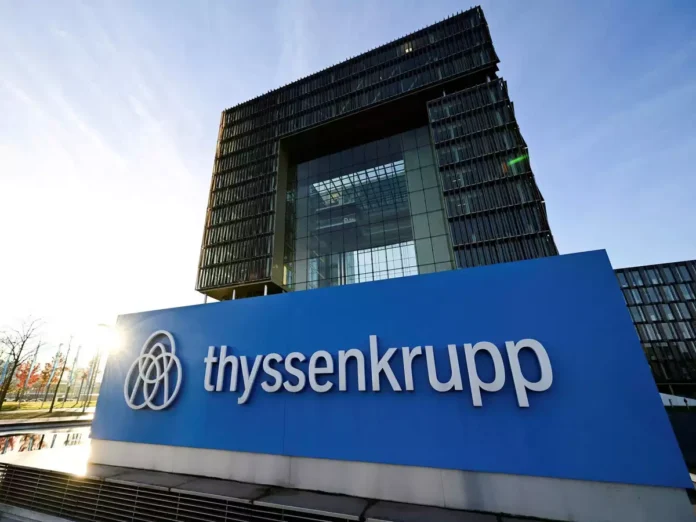Germany’s largest steel producer, Thyssenkrupp Steel, has announced a drastic plan to cut 11,000 jobs by the end of this decade, citing severe economic pressures and a need to streamline operations. The company, which has faced operating losses in four of the past five years, unveiled the restructuring plan on Monday, aiming to improve productivity, reduce costs, and bolster competitiveness in an increasingly challenging market.
A Strategic Overhaul to Combat Mounting Challenges
Thyssenkrupp Steel plans to reduce its workforce by approximately 40%, with 5,000 positions set to be eliminated directly through production cuts and administrative restructuring. Another 6,000 roles will be transferred to external service providers or shed through the sale of business units, the company stated.
“Increasingly, global overcapacity and the resulting rise in cheap imports, particularly from Asia, are placing a considerable strain on competitiveness,” Thyssenkrupp said in a statement. “Urgent measures are required to improve our own productivity and operating efficiency while achieving a competitive cost level.”
)
Economic Pressures Amplify the Crisis
The German steel giant’s decision comes amidst a broader crisis in Germany’s industrial sector. Thyssenkrupp, like many other major players, is grappling with a combination of external and domestic pressures. High energy costs, fueled in part by the geopolitical fallout of Russia’s 2022 invasion of Ukraine, and competition from low-cost Asian manufacturers have further strained the company’s operations.
Germany’s economy, which shrank for the first time since the onset of the COVID-19 pandemic last year, is projected to contract again this year. According to recent forecasts by the European Commission, the economic outlook for Europe’s largest economy remains bleak, with industries facing escalating challenges.
A Sector Under Siege
Thyssenkrupp Steel’s woes reflect a larger trend of industrial struggles across Germany. Automotive giant Volkswagen recently announced its own cost-cutting measures, including a 10% reduction in employee pay, the closure of at least three factories, and mass layoffs. Similarly, Ford has declared plans to cut nearly 4,000 jobs in Europe, with most layoffs affecting workers in Germany and the United Kingdom.
These developments underscore the declining fortunes of Germany’s traditionally robust manufacturing sector. A study commissioned by the Federation of German Industries revealed that one-fifth of Germany’s industrial output could vanish by 2030 due to high energy costs and shrinking global demand for German goods.

Systemic Weaknesses in German Industry
Experts point to “locational weaknesses” as a significant factor behind Germany’s industrial decline. High labor costs, excessive bureaucratic red tape, and outdated physical and digital infrastructure are cited as major obstacles. Furthermore, Germany’s dominance in combustion technology is losing relevance in a rapidly shifting global market favoring green technologies and electric vehicles.
The report, co-authored by the Boston Consulting Group and the German Economic Institute, highlights the need for urgent transformation. It estimates that Germany must invest an additional €1.4 trillion ($1.5 trillion) by 2030 in infrastructure, research and development, and sustainable technologies to maintain its competitive edge.
Thyssenkrupp’s Response and Industry Outlook
Thyssenkrupp’s restructuring is seen as a critical step to counter mounting losses and restore its competitive footing. The company emphasized its commitment to improving operational efficiency and adapting to the evolving economic landscape. However, the scale of the job cuts and operational changes highlights the severity of the challenges it faces.
The steelmaker’s struggles also reflect broader issues in the global steel industry, where overcapacity and rising imports from Asia have created a highly competitive and volatile market. Thyssenkrupp’s decision to scale back operations underscores the difficulty of sustaining profitability in such an environment.
As Germany navigates this period of industrial transition, the stakes remain high. Companies like Thyssenkrupp are at the forefront of an economic restructuring effort that will determine the country’s ability to retain its status as a global industrial powerhouse.

